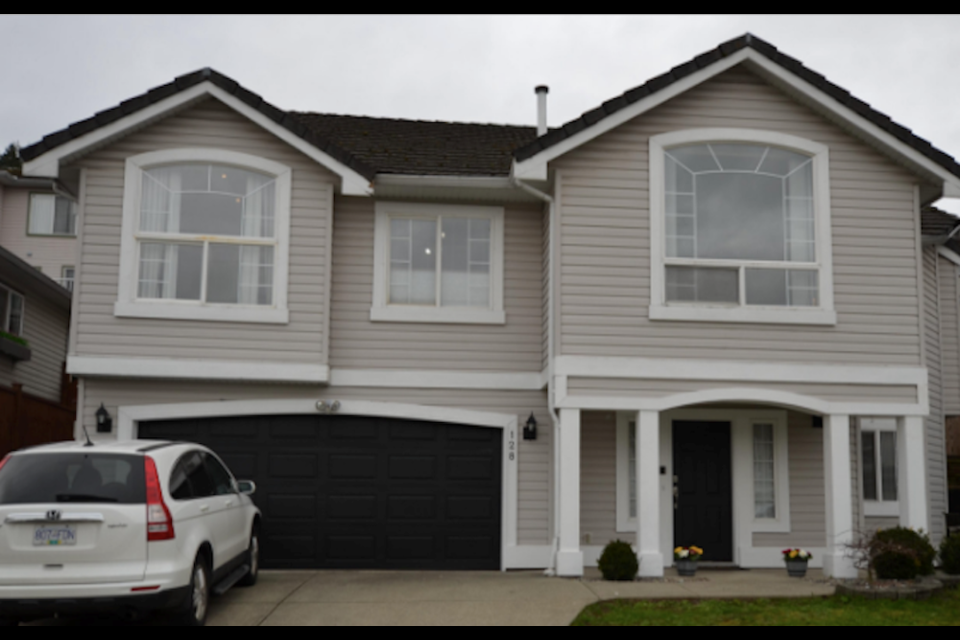Townhouse and condo values rose faster than single-family homes in the Tri-Cities, the latest statistics from the 2023 property assessment suggests.
Today (Jan. 3), BC Assessment made available its single-family home and condo/townhouse property value information based on a July 1, 2022, assessment.
The information is prepared to help cities plan their tax roles for the coming taxation year.
But the data is often a bellwether for housing prices, although concerns have been raised that housing prices have dropped since July due to a cooling of interest among buyers hit with inflation and multiple interest rate hikes.
Still, BC Assessment stands by its assessed values for the year.
"Despite the real estate market peaking last spring and showing signs of cooling down by summer, homes were still selling notably higher around July 1, 2022, compared to the previous year," says BC Assessment Assessor Bryan Murao.
"For both single-family homes and condos in Greater Vancouver, most homeowners can expect about a nine per cent rise in values, whereas the Fraser Valley will be a bit higher at about 10 per cent for houses and 15 per cent for condos and townhomes."
“Similarly, the majority of the commercial and industrial properties across the province will also be receiving higher assessed values in the range of five per cent to 20 per cent with the Fraser Valley generally higher," added Murao.
Here's how property values increased across the Tri-Cities:
Coquitlam
- Single-Family Home $1,499,000 (2021), $1,650,000 (2022) +10%
- Townhouse/Condo $631,000 (2021), $711,000 (2022) +13%
Port Coquitlam
- Single-Family Home $1,233,000 (2021), $1,347,000 (2022) +9%
- Townhouse/Condo $574,000 (2021), $648,000 (2022) +13%
Port Moody
- Single-Family Home $1,627,000 (2021), $1,793,000 (2022) +10%
- Townhouse/Condo $731,000 (2021), $826,000 (2022) +13%
For the Lower Mainland region, the overall total assessments have increased from about $1.75 trillion in 2022 to more than $1.94 trillion this year.
Almost $23 billion of the region's updated assessments is from new construction, subdivisions and the rezoning of properties.
BC Assessment's Lower Mainland region includes all of Greater Vancouver, the Fraser Valley as well as the Sea to Sky area and the Sunshine Coast.
In the next few days, owners of more than 1,089,000 properties in the Lower Mainland can expect to receive their 2023 assessment notices, which reflect market value as of July 1, 2022.
Here's why property assessments are important
- Changes in property assessments reflect movement in the local real estate market and can vary greatly from property to property. When estimating a property's market value, BC Assessment's professional appraisers analyze current sales in the area, as well as considering other characteristics such as size, age, quality, condition, view and location.
- Real estate sales determine a property's value which is reported annually by BC Assessment. Local governments and other taxing authorities are responsible for property taxation and, after determining their own budget needs this spring, will calculate property tax rates based on the assessment roll for their jurisdiction.
- BC Assessment's assessment roll provides the foundation for local and provincial taxing authorities to raise over $8 billion in property taxes each year. This revenue funds the many community services provided by local governments around the province as well as the K–12 education system.
What's my property value?
You can view your property assessment on the BC Assessment website.
Property owners can unlock additional property search features by registering for a free BC Assessment custom account to check a property's 10-year value history, store/access favourites, create comparisons, monitor neighbourhood sales and use an interactive map.
“Property owners can find a lot of valuable information on our website including answers to many assessment-related questions, but those who feel that their property assessment does not reflect market value as of July 1, 2022, or see incorrect information on their notice, should contact BC Assessment as indicated on their notice as soon as possible in January," stated Murao.
“If a property owner is still concerned about their assessment after speaking to one of our appraisers, they may submit a Notice of Complaint (Appeal) by January 31st, for an independent review by a Property Assessment Review Panel," he added.
The Property Assessment Review Panels — independent of BC Assessment — are appointed annually by the provincial government and typically meet between Feb. 1 and March 15 to hear formal complaints.
"It is important to understand that changes in property assessments do not automatically translate into a corresponding change in property taxes," Murao said.
"As noted on your assessment notice, how your assessment changes relative to the average change in your community is what may affect your property taxes."





